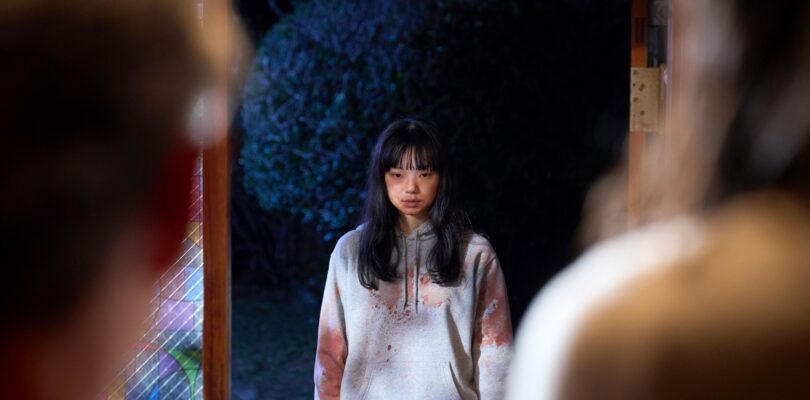“Are you happy now?”
It’s a simple enough question, posed to a young nursing student (played by Kotone Furukawa). She’s left Tokyo for a few days to visit her grandparents in the countryside. They still live in the same house, shuffling around in their autumn years trimming bonsai plants and cooking up homemade miso soup. The moment the young woman step through the door, she’s overcome with a sense of nostalgia; even the smell of the hallways bring her back to her youth, when she’d visit with her parents as a little girl.
Her grandmother (Inuyama Yoshiko) asked her the same thing back then as well. And once again, the student answers yes, of course she’s happy. Both of them smile back, content with the answer. As the visit progresses, however, the couple’s behavior starts to seem… strange. Occasionally, she finds her grandfather (Arifuku Masashi) standing around in a daze, his mouth open, staring at nothing. Late one night, she catches Grandma repeatedly walking into a door, as if she was a Sims character stuck in a glitch. Plus there are the weird noises coming from a locked backroom upstairs. It’s the same odd sounds the woman would sometimes hear as a child, echoing throughout the place in the wee small hours — a cross between gurgling, moaning, and a muffled wail.
Everything in this quaint little abode that she associates with her formative years seems slightly off, in other words. And that’s before she catches a glimpse of a fat, middle-aged man in dingy tighty-whiteys crawling past the kitchen doorway, his eyes and mouth sewn shut.
By the time we get to that jarring moment in Best Wishes to All, the debut movie of Japanese filmmaker Yûta Shimotsu, there’s already a sense that something extremely fucked up is going on — something which our innocent young hero cannot grasp, yet will very soon. As with so many horror films, the shock, the awe and the sheer WTF-is-happening-here–ness of it all is best experienced firsthand, though we can say that everything from pictures with scratched-out faces to creepy dances to simulation-theory conspiracies play a part. Also: Careful with that axe, young lady. You may want to pin the scene involving the elderly folks inexplicably grunting and oinking at their granddaughter during lunch. At first, it seems like they’re trying to mask the eerie thumps happening upstairs. Then they inform her that the pigs are simply expressing their happiness over being eaten: “It’s what they were born to do.” Sometimes it pays to bury the lede.
A feature-length adaptation of his own short film — and one blessed with pedigree; The Grudge‘s Takashi Shimizu is a producer — Shimotsu’s 2023 film has been bouncing around the international festival circuit for two years now. So God (or Satan) bless Shudder, the streaming service-slash-genre-fan catnip patch, for finally bringing this to American audiences. It is, hands down, the best Japanese horror movie in decades, and quite possibly the single best horror movie you’ll see this year, period. Everything from Furukawa’s performance to the sideways manner in which the story reveals its secrets and surreal, Lynchian interludes hits exactly as it needs to. Occasionally, a nudge is required to remind folks that privilege, luxury and personal fulfillment usually come with a price — how the smart phone you’re scrolling on is courtesy of someone else’s labor in less-than-ideal circumstances, or the way that the world appears to work by favoring some and cursing others. Best Wishes to All isn’t a memory-jogging nudge. It’s a violent, wake-the-fuck-up shove.




